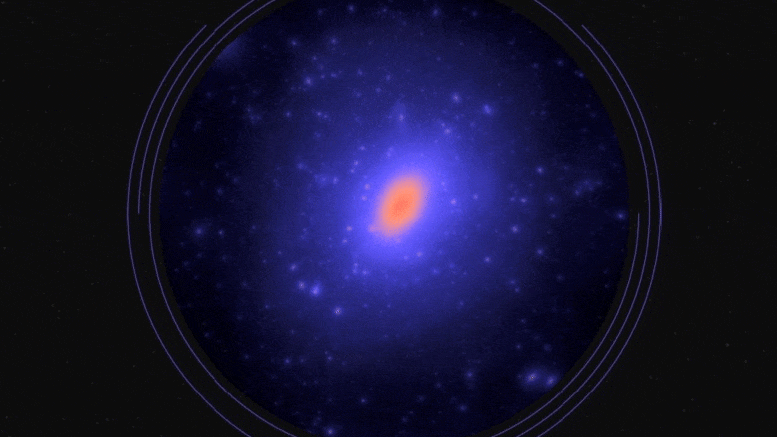Observations of dwarf galaxies around the Milky Way have yielded simultaneous constraints on three popular theories of dark matter.
A team of scientists led by cosmologists from the Department of Energy’s SLAC and Fermi national accelerator laboratories has placed some of the tightest constraints yet on the nature of dark matter, drawing on a collection of several dozen small, faint satellite galaxies orbiting the Milky Way to determine what kinds of dark matter could have led to the population of galaxies we see today.
The new study is significant not just for how tightly it can constrain dark matter, but also for what it can constrain, said Risa Wechsler, director of the Kavli Institute for Particle Astrophysics and Cosmology (KIPAC) at SLAC and Stanford University. “One of the things that I think is really exciting is that we are actually able to start probing three of the most popular theories of dark matter, all at the same time,” she said.
